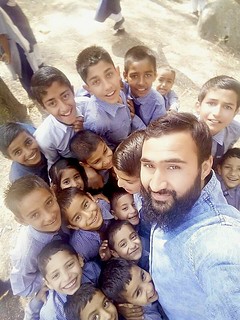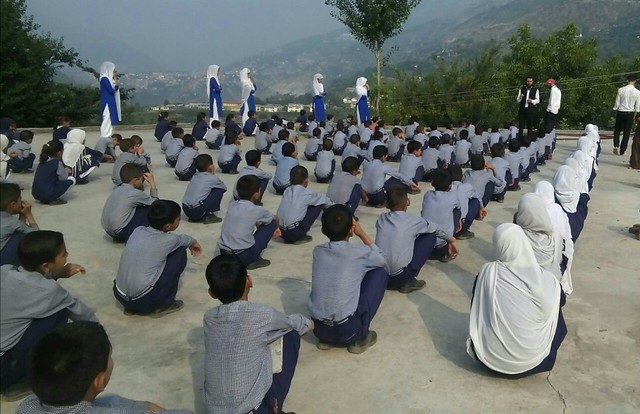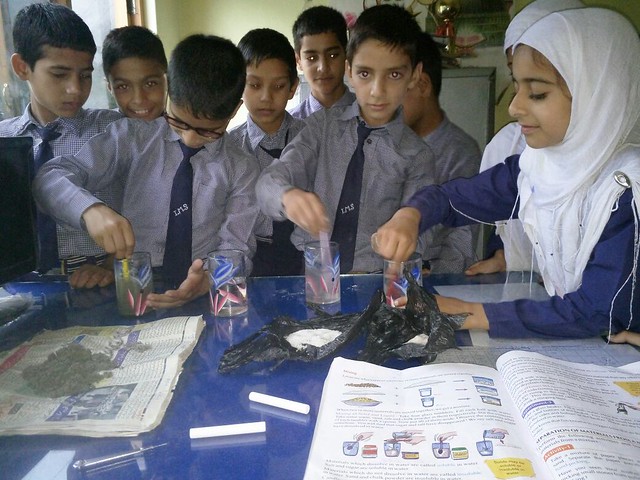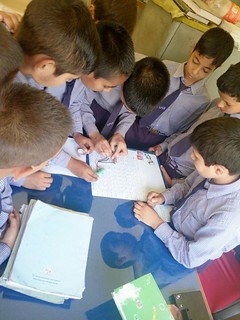By Raqib Hameed Naik, TwoCircles.net
Doda (J&K): As one travels 180 kms east of Jammu , the scenic beauty and picturesque landscape with the mighty Chenab river dissecting the valley into two parts welcomes one to Doda district of Jammu and Kashmir.

Spread across mountains and lush green trees providing a cover to the high ranges, with the soulful winds blowing round the day can let anyone fall in love with its beauty. But beneath the present calm, lies a burden of torture, disappearances and deaths of the 1990s when Kashmir was up in arms against the Indian rule.
Fifteen kms from Doda, on the foothills of the Himalayas, lies Bhabore, a non-descript village which overlooks the flowing mighty Chenab deep in the gorge. The village might be peaceful as of now, but like many other places in the state it too has a painful past.

On the evening of May 16, 1996, seven-year-old Umar Iqbal’s father Mohd Iqbal Bhat, a school teacher was relaxing back home, just like everyone else in the village, after a tiring day.
A well-known figure in the nearby villages, Mohd Iqbal Bhat, who was 35-years old at the time, was also one of the members of Jamaat-e-Islami, which used to be on the radar of Indian security forces. These were the days when fear of security forces ruled the streets in this part.
Bhat was with his two sons and one daughter and the family was about to have dinner when a barrage of knocks disrupted their evening.
He rushed to open the door. Around a dozen army men were standing in the lawn and asked him to accompany them, to which he obliged. He promised his kids and wife to return in few hours.
Hours turned into days, little Umar along with his mother tried to search for Iqbal everywhere across the army camps, but to no avail. Three days after his sudden disappearance, the family found the dead body of Iqbal in Dashnan, another village in Doda.

The sudden killing of Iqbal was a period of gloom for the entire village. Umar was very close to his father and despite being seven, he had realised the tragedy that befell on his family. The thoughts of his father death continued to haunt him for over a decade.
During those years, it was a norm to cross the border to get arms training to take revenge for the killing of loved ones by the army, but Umar even though little, acted maturely and chose to continue the mission of his father: first, to get educated and then, to educate.
At the age of 14, he moved to Srinagar and enrolled himself in an orphanage, where he studied for seven years and graduated from Amar Singh College, Srinagar.
“After my father’s death, there was no financial support for my family due to which my studies affected. Seeing our wretched conditions, one of my father’s friends, late Mohd Akram took me to Srinagar and admitted me in an orphanage (J&K Yateem Khana),” says Umar, who is now a 27-year-old man.
In 2011, he decided to dedicate himself for establishing a school which could impart quality education to the poor villagers at a minimal cost. One of his uncles donated him a building and he started the enrollment process the very same year by getting it registered in the education department of the state government.
“I had no money to start with, but as it is said that if you are committed to something good then God opens many doors for you. The same happened to me,” says a proud Umar.

“Iqbal Memorial School” named after his late father, initially had 20 students enrolled, but after six years, the school has more than 150 students from different villages.
The school is more like a model school in the village having facilities at par with any other school in cities. A big library with more than 1,000 books keeps students busy in their spare time. The school is also equipped with a computer lab with four computers and has internet connections to introduce the children to the outside world. The students are also taught via smart classes through the use of projectors.
“My father believed that that ignorance is the basic cause of distress, confusion, and poverty. There was no dearth of intelligent and brilliant children in our village, but due to lack of educational facilities and backwardness they weren’t able to carry forward their education leaving them to work only as laborers,” tells Umar.
The school not only teaches the children but also holds regular sessions for villagers so as to emphasize the necessity of educating the children.
“The school has totally changed the environment of our village by creating a temperament of encouraging universal education. Now people don’t have to migrate to towns for getting a quality education, they are getting it at their doorstep,” says 58-year old Abdul Rashid Bohru, a resident of the village.
Nine-year-old Mehak Irshad is studying in Iqbal Memorial School since its inception. She achieved the first rank in debate competition held among 40 schools at the zonal level this year.
“We are not only taught subjective knowledge but also encouraged to take part in co- curricular activities. ,” says Mehak.
She wishes to join the civil service after completing her education.
Umar is now working hard to upgrade his school up to tenth standard so that the village children’s don’t have to migrate to cities for higher education or drop their plans to pursue further education altogether due to the costs involved in the cities. He is also looking for generous supporters, who can donate computers and infrastructure for his school.
“We are offering education at a very low cost so that every poor person in the village can afford to get an education for their children. Those who can’t even afford that amount are exempt from giving the fee, and so are the orphans who study here. In recent years some people have come forward to sponsor those kids,” says Umar.
Umar isn’t looking for profits or some long-term corporate goals but wants to tune the behavior of students in such a way that they can be messengers of love, kindness and peace among masses besides paying back to the community to which they belong.
“Education was a wealth for my father and I got it even when I lived in the orphanage. Now it’s my turn to dispense the very same wealth among my people via the medium of school,” adds Umar.
Related:

